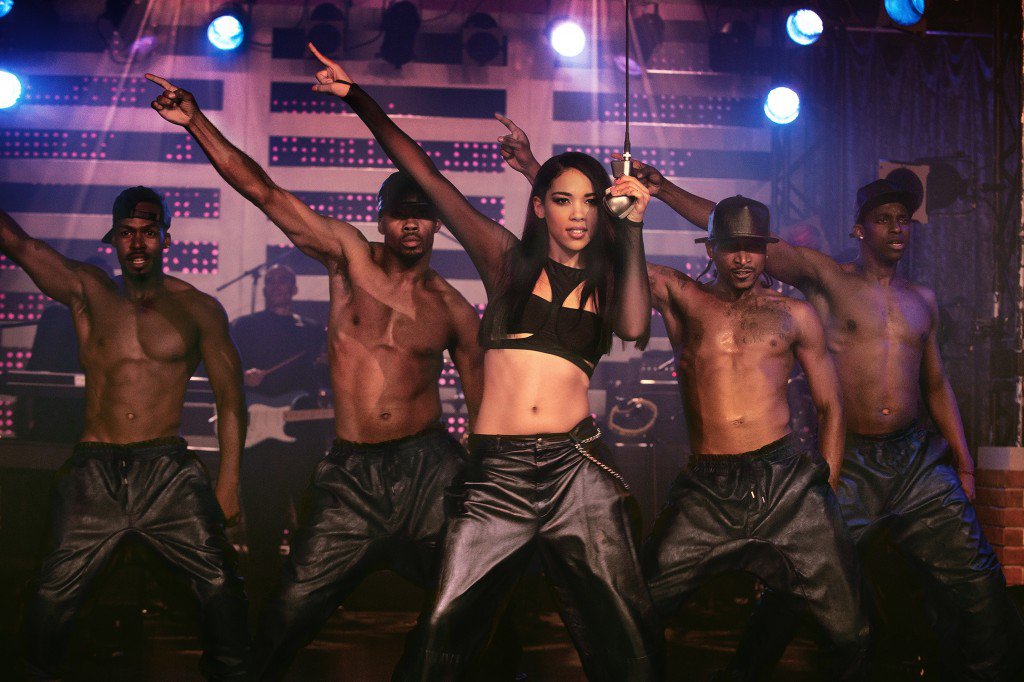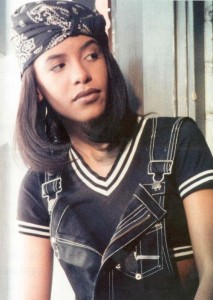Introducing us to a younger overly-ambitious star, Babygirl (Aaliyah’s nickname), the start of Lifetime Network’s much-slated biopic of the life of Aaliyah sees her auditioning on talent show Star Search while performing 1930s show tune ‘My Funny Valentine.’
The ten-year-old Aaliyah, played by Kamaia Fairburn-Grant, masters the true essence of the original clip, giving us hope that the biopic wouldn’t be quite as badly executed as anticipated following casting changes that plagued the film’s production and Aaliyah’s family’s deep opposition to the whole project.
Having failed to win the talent contest, another door seems to open for Aaliyah (Alexandra Shipp) and we are introduced to R. Kelly (Cle Bennett), the mastermind behind her hit album Age Ain’t Nothing But a Number.
As R.Kelly begins to work with Aaliyah, her talent and music are not the only things he falls in love with and a disturbing love story blossoms between the 15-year-old and 27-year-old. The stereotypical boy meets girl portrayal of the two’s courtship is somewhat controversial, especially since they met when she was only 12.
The film, which was based on Christopher John Farley’s biography Aaliyah: More Than a Woman and co-produced by talk-show host Wendy Williams, depicts Aaliyah’s struggle to discover her sense of self after she was forbidden to see R.Kelly and eventually forced to have their illegal secret marriage annulled by her parents (Rachael Crawford and Sterling Jarvis).
The strong mother-daughter bond depicted throughout the film is refreshing, and we see Aaliyah’s mother remind her that R.Kelly only brought out her talents. The artist then throws herself back into her art.
Setting herself up to work on her second album, Aaliyah goes against her advisers and opts to produce with Timbaland and Missy Elliot (Izzak Smith and Chattrisse Dolabaille), unknown at the time. The trio bond easily and produce One In a Million, which is still considered one of Aaliyah’s greatest successes in her all-too-brief career.
Since Aaliyah died at the young age of 22 in a plane crash, it is no surprise that Lifetime Network chose to cover a wider period of her life. However, the placement of events throughout the film are somewhat fragmented. One minute we’re in 1989 and Aaliyah is getting advice from her Aunt, Gladys Knight, and the next we’re in 1991 and she is being signed. In between these fragments are a few radio interviews which are intended to join the artist’s story together. The film rushes through her journey so much that the most pivotal moments of Aaliyah’s career are not given the emphasis they deserve.
The family’s objection to the creation of the film and their withheld rights to the singer’s music also clearly affects the film. The family did not believe that Lifetime were the right network to tell the artist’s story.
The film lacks major original tracks of Aaliyah’s like Age Ain’t Nothing but a Number, One in a Million, or Try Again, instead using dull covers of Aaliyah’s songs and renditions of Bobby Brown’s My Prerogative and Vanessa Williams’ Save The Best For Last, sung by Shipp. These make the film seem incomplete, non-representative, and dull. You wouldn’t make a biopic of Michael Jackson and not include Thriller.
While Alexandra Shipp’s performance on a whole is not extremely terrible, the only things the two seem to have in common are their black hair and fair skin. From afar Shipp slightly resembles Aaliyah with the 1990s glasses and the baggy trousers, but barely any efforts were made to imitate the artist’s trademark ‘hair covering half-eye’ look and Shipp neither sings or moves like Aaliyah.
The casting for Missy Elliot and Timbaland is no better, particularly with Dolabaille clearly too light-skinned and slim to play the then curvaceous Elliot. At least a tiny bit of effort could have been made to find actors and actresses that resemble the true artists.
One of the major elements missing from the film was the reaction to Aaliyah’s death. Although it would have been tasteless to broadcast an airplane crash scene, showing how her unexpected death affected all of her fans would have depicted how much she was truly loved.
The final verdict? The film was a mess. It does not honour Aaliyah’s legacy and it does not reflect the artist in the way it should have. When Lifetime realised they couldn’t create the biopic properly they should have just stopped production. Aaliyah deserves a proper movie; one her many fans will appreciate. Sadly the criticisms for Aaliyah: The Princess of R&B are rightly deserved.






